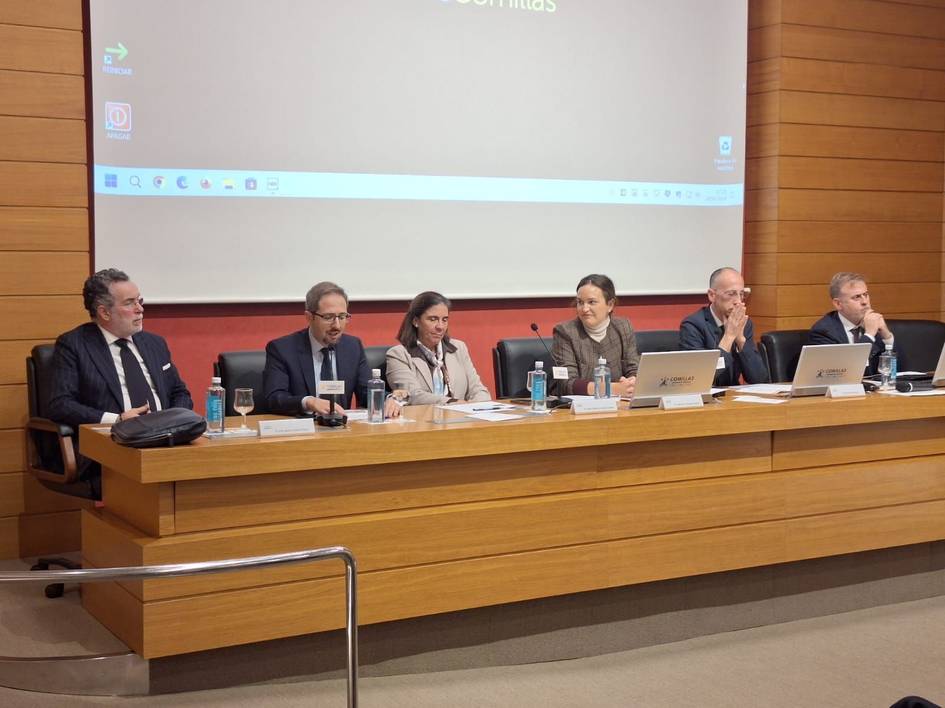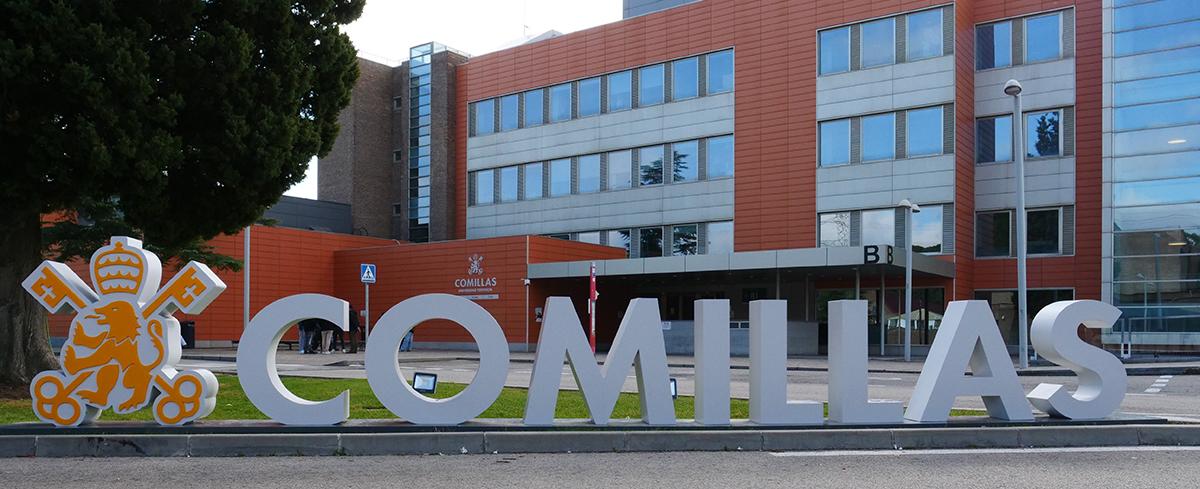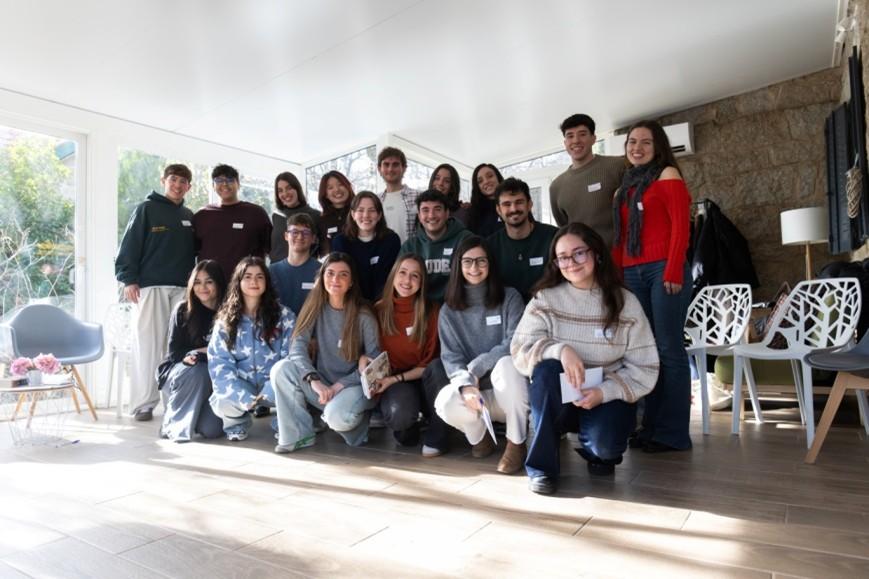EU directive on corporate sustainability due diligence up for debate
The Garrigues-ICADE Chair continues to be at the forefront in the analysis of European business regulation, commenting on this occasion on sustainability risks and the role of Boards of Directors.

26 November 2024
On 13 June 2024, Directive (EU) 2024/1760 on corporate sustainability due diligence was adopted. For this reason, the Garrigues Chair in Modernisation of Corporate Law (Comillas ICADE) brought together leading experts to discuss the challenges and implementation of this regulation.
More photos
The day began with welcoming remarks by Abel Veiga Copo, Dean of ICADE Law School, followed by the inaugural speech by Andrés Recalde Castells, lecturer in Commercial Law at the Universidad Autónoma de Madrid. In his speech, he stressed the difference between sustainability as the viability of society and as social welfare, underlining that "due diligence" is a proceduralised obligation of means. The speaker also highlighted the possible beneficial effect for companies of the obligation to carry out due diligence.
This was followed by a panel moderated by Mónica Martín de Vidales Godino, Co-Director of the Corporate Department at Garrigues and Co-Director of the Garrigues Chair in Modernisation of Corporate Law (ICADE), which addressed economic, procedural and liability issues.
Firstly, Manuel Llamas Fraga, Executive Director of the Juan de Mariana Institute, offered the general economic perspective by exposing the excessive national regulation in environmental matters, with less interventionist regulation being more efficient. He also stressed that environmental sustainability must go hand in hand with economic sustainability, without capitalism being a negative factor. However, the question arises as to the real effectiveness of the measures if the most polluting countries continue not to cooperate.
The intervention of Dulce Calvo González Vallinas, Property Registrar and Director of Corporate Social Responsibility of the Spanish Association of Registrars, focused on the increase in litigation on sustainability issues. She highlighted the diversity of entities sued and sectors affected, as well as the growing importance of the rights of nature. He concluded that litigation is a source of arguments for future litigation, fills legal gaps and drives new regulations.
On the other hand, Luis Hernando Cebriá, lecturer in Commercial Law at the University of Valencia, focused his intervention on the transition plan for the mitigation of climate change. As it implies a change in the business model, questions about the competence for its adoption or the role of the Governing Bodies were addressed in his speech.
Next, Pedro Portellano Díez, Professor of Commercial Law at the Universidad Autónoma de Madrid and Of Counsel at Garrigues, analysed the impact on the audit committee, which in many cases includes the risk committee. Following this approach, he reflected on the ability of auditors to determine measures to identify current and potential risks.
Finally, the remuneration of directors was presented by Juan Ignacio Peinado Gracia, lecturer in Commercial Law at the Universidad de Málaga, who pointed out the existence of social concern since 2006. He stressed that, as of 2021, remuneration should be indexed to long-term sustainability (in its legal sense), with no variable remuneration.
After a colloquium in which the attendees were able to discuss what was presented, this conference marks the beginning of an essential dialogue between law, economics and sustainability, which will continue to evolve in order to define the future of the responsibility of Boards of Directors.
You may also be interested in...

The university community came together in prayer as a gesture of commitment to peace and justice

The European QS Ranking is published, which also places Comillas as a leader in employability and reputation among employers

María Merinos and Marcos Fernández Martínez, students of the Dual Degree in Psychology and Business Administration, participate in this programme, a reference in Spain for the development of young talent
